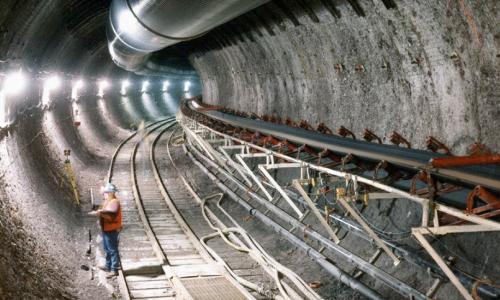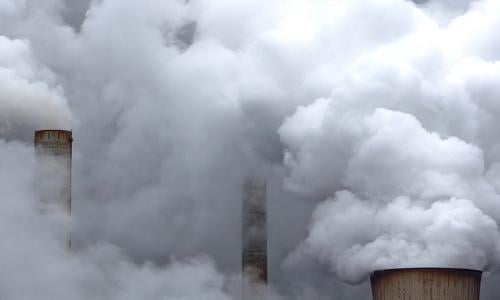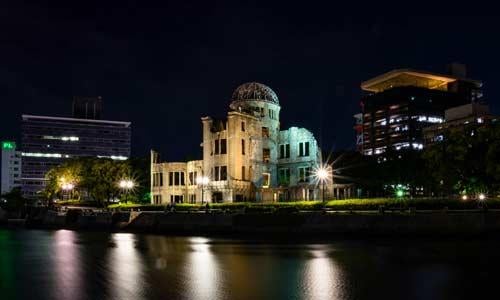Waste accumulates at U.S. nuclear power plants as the process of choosing a site for a geological repository has stalled.
A permanent repository would be a storage facility located deep underground and engineered for the long-term safe disposal of nuclear waste, to keep it isolated from the environment. Such a repository is needed because spent nuclear fuel remains dangerously radioactive for thousands of years after it is removed from the reactor.
In 1982, the United States Congress passed the Nuclear Waste Policy Act (NWPA), which made the U.S. Department of Energy (DOE) responsible for siting, building, and operating an underground storage facility for nuclear waste, and for taking ownership of the waste and transporting it away from reactor sites. The NWPA created a Nuclear Waste Fund to pay for the repository by charging reactor operators a fee on the waste they produced. As of 2013, the fund contains approximately $29 billion.
For several years, the DOE studied a number of locations to determine their suitability, until the Congress amended the NWPA in 1987 directing the DOE to study only Yucca Mountain, a site in the state of Nevada about 80 miles northwest of Las Vegas.
The On-Again, Off-Again Yucca Mountain Site
Congress’ decision to study only Yucca, and its subsequent June 2002 approval/designation of the site, triggered years of legal challenges, strong opposition from many in the state of Nevada, and a significant amount of scientific disagreement about the suitability of the site. This has stalled the project. As a result, the original plan for DOE to begin accepting fuel at Yucca Mountain in 1998 did not happen.
In 2006, the DOE, during the George W. Bush administration, recommended that Yucca should open and begin accepting fuel by 2017. However, opposition continued, and in 2008, presidential candidate Barack Obama promised to abandon the project. After his election, the DOE filed a 2010 motion with the NRC to withdraw its Yucca Mountain license application. A number of lawsuits have been filed in response to the DOE’s action.
Utility lawsuits
Because of the federal government’s failure to meet its legal obligation under the NWPA, a number of utilities that own nuclear reactors have successfully sued the federal government for breaching its contracts with the companies by failing to open a facility that could accept fuel by 1998 in exchange for collecting fees for the Nuclear Waste Fund. As a result of these lawsuits, the federal government has paid hundreds of millions of dollars in damages to the utilities for costs associated with storing waste at their sites long after the government was supposed to take title to it and ship it off site.
The Blue Ribbon Commission
In 2010, the Obama Administration established the Blue Ribbon Commission on America’s Nuclear Future (BRC) “to conduct a comprehensive review of policies for managing the back end of the nuclear fuel cycle, including all alternatives for the storage, processing, and disposal of civilian and defense used nuclear fuel, high-level waste, and materials derived from nuclear activities.”
In its final report in 2012, the Commission recommended a “consent‐based” approach to siting future nuclear waste storage and disposal facilities, the creation of a new agency to manage nuclear waste, and immediate work to begin development of at least one geologic repository and one consolidated storage site. Congress has tried periodically to address the BRC’s recommendations, but so far without success.
It will likely take decades before either a repository or interim consolidated storage site is sited and constructed. In the meantime, nuclear waste will continue to accumulate at reactor sites.




